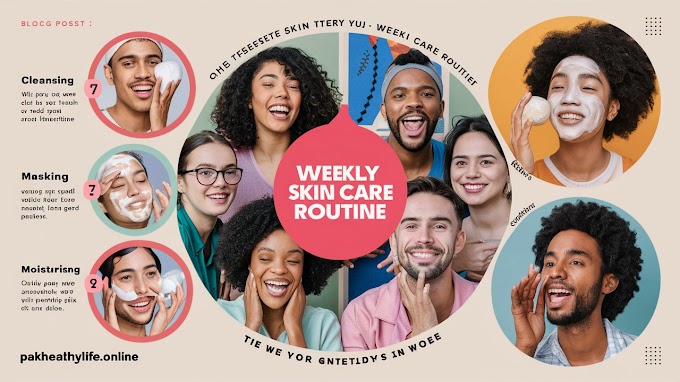Imagine it's a regular day. You are on a field trip, and suddenly you start sneezing. Your eyes start watering, and your throat feels itchy. You realize pollen allergies have kicked in and struggle to find a pack of tissues in your bag. Usually, an allergy pill works, but it has a side effect of drowsiness. You can't risk feeling sleepy so now you’re stuck dealing with allergies.
If only there were a way to eliminate the allergies without side effects! Surprisingly, some natural foods, also called antihistamine foods, can do just that! In today's Post, let's discuss some natural solutions to end your allergies. Do oranges and lemons help? What about fish oil? We're talking about all that and more. But first, what exactly are antihistamines?
9 SUPER FOODS Topics List :
- What Exactly Are Antihistamines
- ️ Vitamin -C Rich Foods
- ️ Fish Oil
- ️ Black Cumin Seed Oil
- ️ Quercetin
- ️ Stinging Nettles
- Bromelain
- Probiotics
- Vitamin D
- ️ Butterbur
️What Exactly Are Antihistamines:
Every year, 60 million Americans suffer from allergies due to hay fever, conjunctivitis, or hypersensitivity to insect bites and bee stings. Antihistamines are medications used to reduce the symptoms. You can get allergy tablets, capsules, syrups, creams, lotions, gels, eye drops, and nasal sprays from your doctor or over the counter. Your body releases a compound called histamine when it discovers dangerous compounds in your system. Histamine also kicks in your body's natural defense mechanisms, causing swelling of blood vessels and other skin responses. This is essential to get rid of a foregin substance. However, during an allergic reaction, your body can misinterpret something relatively harmless—like pollen, pet hair, or dust—as a danger and releases histamine. This release triggers an allergic reaction with symptoms like itchy, watery eyes, a runny or blocked nose, sneezing, and skin rashes.
You can avoid it by taking antihistamines before being exposed to the allergen. The downside of pharmaceutical antihistamines is that you have to take higher doses over time, constantly making you tired. They also can cause brain fog, insomnia, tremors, and excessive dryness in the sinuses. This is where natural antihistamines help. Natural histamine from vegetables, fruits, and herbs provides allergy relief without all the side effects. They might take a little longer to work, but they do work. Additionally, you get abundant nutrients and essential vitamins for your overall immunity. In short, natural antihistamines help to manage your allergy symptoms better. Now let's look at some antihistamines that you can find naturally. Look for Vitamin -C rich foods to mellow down allergies.
️ Vitamin -C Rich Foods
The medical world consistently links this vitamin to better immunity. During the pandemic, we saw the importance of vitamin C. but there is more to it. You can use Vitamin C to treat allergies due to its anti-inflammatory and antioxidative properties. A study found vitamin C to be the key when treating oxidative stress-related allergies. The team of researchers had toadminister intravenous vitamin C to eliminate the lethal allergic symptoms.
But luckily you don't have to do that. You can rely on natural foods. We often consider only citrus fruits like oranges and lemons to give a blast of Vitamin C. But in reality, other fruits like papayas, guavas, kiwi fruit, and berries provide equal if not more vitamin C. Besides, vegetables like bell peppers, broccoli, and squash also pack in some serious vitamin C. Next on our list is fish
️ Fish Oil:
Aim at eating at least 1-2 servings of fatty fish each week to stay fit. Herring, tuna, anchovies, salmon, and mackerel can be a great addition to your diet. They contain omega-3 fatty acids, which have numerous health advantages and can fend off several ailments. However, if fish is not on your weekly menu, you must try some fish oil supplements. They are made from cod's liver or liver of other species of fish. DHA and EPA are the two primary omega-3 fatty acids found in fish oil.
The pills typically contain some vitamin D and A as well. Asthma affects 300 million people globally. Studies confirm that fish oil can offer you protection from asthma and allergies. Your body cannot make Omega 3 and Omega 6 fatty acids. That's why it's crucial to get them from fish oil supplements. (Pause) Moving along, have you heard of black cumin seed oil?
️ Black Cumin Seed Oil

This oil is not a novelty. It has recently gained popularity for treating aching joints and maintaining weight among holistic healers. The Nigella sativa flower, which originates in Southwest Asia, produces tiny black seeds used to make black cumin seed oil. It has an amber tinge and has been used throughout the Middle East, Africa, and Eastern Europe for thousands of years. This oil cures a wide range of ailments. It has cholesterol-lowering phytosterols and essential fatty acids like omega-3, -6, and -9. However, a particularly effective active ingredient known as thymoquinone
makes it powerful. It is an antioxidant with anti-inflammatory, anti-allergy, and has immune-supportive characteristics. Black seed oil can manage seasonal allergy symptoms. According to a study, individuals with allergic rhinitis and hay fever received black seed oil for two weeks. They reported gradual improvement in nasal congestion, itching, runny nose, and sneezing bouts. Scientists think that thymoquinone's antihistamine properties again brought on these effects. Antioxidants like quercetin also help.
️ Quercetin
Apples, red grapes, onions, capers, berries, and black tea are natural sources of quercetin.
Research shows quercetin to efficiently manage allergic rhinitis, atopic dermatitis,
and eczema. One animal study also found quercetin to improve respiratory symptoms in allergic mice.
You can ask your doctor for quercetin supplements as the food contains significantly lower amounts.
Just a word of caution before having those supplements: Although safe, higher doses can cause
tingling in the hands and legs, headaches, and kidney damage if consumed for a prolonged time.
The next herb that is a powerful antihistamine is stinging nettles.
️ Stinging Nettles
When you brush across the bush, the hairy stem and leaves give out a stinging feeling. That's why the name is scary. You'll find stinging nettles throughout North America, Europe, and Africa. For many years, it has been a natural cure in traditional treatments.
Stinging nettle can be in tea, tinctures, and supplements. Research finds it lessens allergy symptoms in a few individuals. Even though further study is needed, it won't hurt to try this herb. Next up is bromelain.
Bromelain
Wondering what that is? It's an enzyme found in papaya and pineapples. It is a popular natural treatment for swelling, particularly in the sinuses and after surgery or injury. According to research on mice, bromelain's anti-inflammatory and anti-allergic qualities helped lessen allergies.
Bromelain is also available as a supplement. But avoid it if you are sensitive to pineapples, pollens, carrots, celery, rye, wheat flour, latex, and bee venom. The adverse effects of bromelain include renal damage, heavy menstrual flow, diarrhea, vomiting, rapid heartbeat, and stomach trouble. Moving along, how often do you have probiotics?
Probiotics
There are billions of bacteria and microorganisms in your gut. Is your inner germaphobe shuddering? Don't worry. Your gut microbiota is crucial to your overall health. Probiotics are a particular type of bacteria that promote gut health. Fermented foods and drinks like yogurt, tempeh, kimchi, kefir, kombucha, and sauerkraut contain
probiotics. A daily probiotic supplement also helps you to get a mix of healthy strains. These foods and supplements strengthen your immune system and reduce your risk of allergies. If you are an expecting mom, probiotics may reduce your baby's risk of developing allergies by exposing them to healthy bacteria early in life. One more vitamin that kills allergies is Vitamin D.
Vitamin D
Allergic rhinitis, asthma, eczema, and anaphylaxis, can be related to vitamin D deficiencies. Vitamin D mediates the allergy-causing cell reactions. Lack of this vitamin can cause a flare-up of allergies. One study found that using Vitamin D supplements for eight weeks reduced allergy symptoms, in individuals low in Vitamin D.
So this might push you to go out in the sunlight a little more and enjoy fortified cereal, milk, and eggs. They are excellent sources of vitamin D. Lastly, we have an unconventional shrub: butterbur. This shrub is native to Asia, Europe, and some regions of North America. People use
️ Butterbur
it to produce butterbur extract. It treats hay fever, allergic rhinitis, and migraines. But raw butterbur could be dangerous. It contains alkaloids, a class of molecules that can harm the liver and lead to cancer. There are unique butterbur extracts that don't include these toxins. Make sure you get your hands on that kind. However, scientists have not studied the side effects of special butterbur extracts over the long term. So be cautious with the dose. In addition, those allergic to ragweed, chrysanthemums, marigolds, or daisies may experience adverse reactions. Remember, in addition to these natural cures, avoiding your allergens is the best way to protect yourself.
That said, there is no assurance that a natural antihistamine that worked for your buddy would also impact your allergies. We all love natural home remedies. And why shouldn't we? They are pocket-friendly, free from side effects, and do the job. Let's keep the conversation going with a couple more home remedy-related videos, shall we? Check out these 14 Easy Home Remedies For Styes You Need To Know or 4 Home Remedies For Removing Ear Wax. Go ahead. Click on e, or better yet, watch both and learn how to treat health problems from the comfort of your home. Are you allergic to anything? Let us know in the comments below.












.jpg)
.jpg)

.jpg)
.jpg)
.jpg)


.jpg)



